Today I’m answering questions from reader Annie Daylon.
 “Molly, I read your blog regularly and have recently participated in an online writing conference and, in one of the workshops, it was suggested that authors blog only about their own work: what inspires them, chapters from the book, short stories.
“Molly, I read your blog regularly and have recently participated in an online writing conference and, in one of the workshops, it was suggested that authors blog only about their own work: what inspires them, chapters from the book, short stories.
“They said an author’s blog should read like s/he is standing in a book store, talking about her work. It was further suggested that, if a fiction author is blogging about writing, it should be in a separate blog. Your blogs are all about writing (thank you!), but do you blog separately for your [fiction] readers? Does blogging about writing help sell your novels? Have you considered blogging about your novels?”
Hi Annie! Great questions. I’ll start with a little backstory: I started blogging in 2011, long before I had a book published or could even define my genre or what the heck I was doing. I couldn’t write about my books because they were nonexistent. But since I knew I’d need a website at some point, I jumped in.
In the early days my go-to posts were personal essays, but I soon found that “digging deep” week after week was draining. So I began to blog about where I was in the self-publishing process, and back then I was focused on firing up social media accounts and learning the mechanics of setting up a blog and writing posts. Those articles got a lot of attention because, frankly, about a million other authors were trying to learn what I was learning. Having said that, my recommendation is now and always has been, “don’t do what I did.”
I don’t actually post about blogging anymore, because my posts tend to reflected where I am in the process, and right now I’m all about book promotion. Bottom line, blogs go through phases just like everything else.
Should authors blog only about their own work?
In my humble opinion – these are only my thoughts and I realize many different theories exist, which is probably tough for newbie writers – blogging exclusively about your books would get tiring and repetitive for the author and boring for the reader, especially if you only have a couple titles published. You’d run out of material fast, even if you covered all the possibilities – how you choose plots, locations, characters, and settings, where your books are sold, your genres and what the definition is of same. There’s a lot more, but if you’re posting once a week, in a year’s time you’ll have reached the bottom of the barrel.
I think posting only about you might eventually seem overly self-focused, like those conversations where the person you’re speaking with consistently turns the subject back to them. I remember once sharing news with someone that I’d just published my second book – I was so excited! – and their reply was, “Really? My next book is going to be about …”
Okaaaaaay. Whatever.
The exception, of course, is non-fiction authors. Their websites and content should revolve around the subject of their books. Sounds contradictory – since I’ve published a nonfiction book – but teaching other authors to blog is not my focus or goal for future success, selling my fiction is.
 Why do we blog?
Why do we blog?
Authors gain from regular blogging for several reasons. For instance, Google approves when a website consistently adds content, and it will reward you with better rankings in search results. That means that when somebody is *looking* for you, your website will pop up sooner rather than later if you regularly add content. Blogging also shares our “voice,” giving potential readers insight into who you are, how you express yourself, your personality, and whether or not your books will also prove interesting. There are many more reasons, of course, as I noted in this post: Why Do We Blog?
What do readers want from an author’s website?
The truth is, I don’t believe readers want to hear about an author’s books all the time – and successful author Roni Loren agrees. She notes these Six Things Readers Want From Your Author Website. In a nutshell:
- Exclusive content: special offers and goodies, giveaways, etc.
- Your schedule for book signings, interviews, and appearances.
- Recommended books by other authors.
- Book News: Inside information about your books, updates on tours, reviews, and WIPs.
- Your contact information for reader feedback.
- Your social networking information.
If a fiction author blogs about craft or the industry, should it be in a separate blog?
Accck! I’d personally never recommend that an author maintain two blogs, because I am intimately familiar with how much time and effort it takes to maintain a single blog, just posting once a week. Do that for three years or so, and you will experience blog fatigue. Keeping up two separate blogs would be twice the work – and it ALL takes away from the time you have to write more fiction books.
Instead, my theory is to choose a handful – no more – of topic categories, and write posts on subjects that fit into each. Your writing process can be one of those categories. Jane Friedman writes about several blogging models for authors but my suggestion is not to choose just one model, but to combine them all. Example? Highlight other authors in your genre, share personal essays, chat about your books and all the topics that contribute to them, and finally, write about your writing process. Here’s what those categories might look like:
- Featured authors and their books
- Essays on life and living
- About my books
- On writing
If you need ideas for topics, types of posts, and categories, check out 101 Fabulous Blog Topic Ideas.
Does blogging about writing help sell your novels?
To clarify, I never blog about the craft of writing. Instead, I share what I’ve learned throughout the process of self-publishing, good and bad. Those subjects have attracted a lot of other authors, and that’s who follows my blog. But I’d also like to note two things:
- Nearly every successful author I know or follow blogs a bit for fellow authors.
- I wrote a blog post a long time ago, Writers Are Readers Who Write, Right? It still applies.
The secret for most fiction authors, I think, is not to blog exclusively about writing and/or your process. I know that a small percentage of authors who find my site and follow it for self-pubbing info also buy my books, because they tell me. But that’s not why I post every week. I blog – and will continue to – because authors tell me it helps them, and I hope to continue to add value.
Have I considered blogging about my novels?
Last but not least, at this point in my author career, I’m not concerned about blogging for my fiction readers. These folks find my website because they’ve already read one of my books. My goal going forward is to build my Reader’s Club email list and keep in touch with these “fan” type subscribers via a periodic newsletter. I don’t need or want fiction readers to subscribe to or follow my blog posts, I want them to subscribe to my email list. If one of my posts is pertinent to them, I can include it in the newsletter.
Something I’ve often thought about incorporating into my own posts (okay, yes, stealing) is Russell Blake’s fabulous call-to-action sign-off, which he includes in nearly all his self-publishing related posts. It amounts to, “buy my books.” I think it’s a great way to remind folks that we are authors, too, and as such would appreciate ALL our readers’ support. So, readers, if you enjoy my blog and would like to contribute to my livelihood, do me a huge favor and show your support by buying my books. Here’s my Amazon Author Page so you can see them all.
Mwah! Thank you so much!
Note from Molly: Check out my novels on Amazon, join my Reader’s Club for freebies and book news, and follow me on Twitter. This original content is copyright protected. Thank you so much. Mwah!

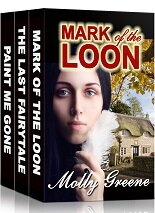
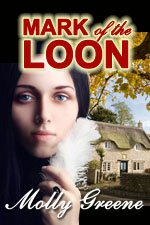
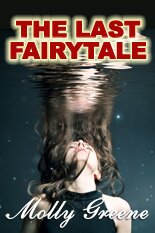
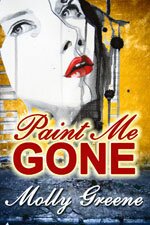
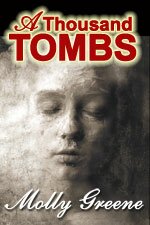
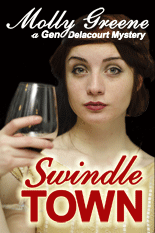
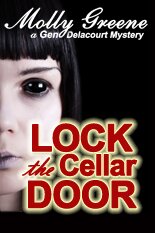
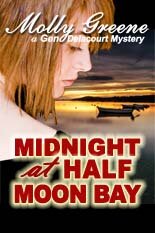
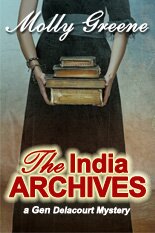

Comments are closed.